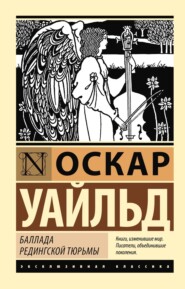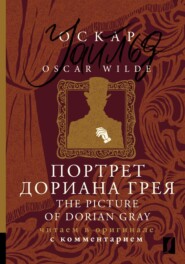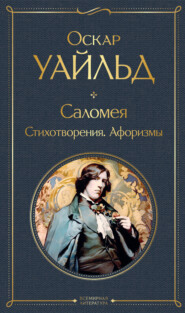По всем вопросам обращайтесь на: info@litportal.ru
(©) 2003-2024.
✖
Miscellaneous Aphorisms; The Soul of Man
Настройки чтения
Размер шрифта
Высота строк
Поля
One knows so well the popular idea of health. The English country gentleman galloping along after a fox – the unspeakable in pursuit of the uneatable.
People seldom tell the truths that are worth telling. We ought to choose our truths as carefully as we choose our lies and to select our virtues with as much thought as we bestow upon the selection of our enemies.
Soul and body, body and soul – how mysterious they are! There is animalism in the soul, and the body has its moments of spirituality. The senses can refine and the intellect can degrade. Who can say where the fleshly impulse ceases or the psychical impulse begins? How shallow are the arbitrary definitions of ordinary psychologists! And yet how difficult to decide between the claims of the various schools! Is the soul a shadow seated in the house of sin? Or is the body really in the soul, as Giordano Bruno thought? The separation of spirit from matter is a mystery, and the unison of spirit with matter is a mystery also.
Those who find beautiful meanings in beautiful things are the cultivated. For these there is hope.
There is no such thing as a moral or an immoral book. Books are well written or badly written-that is all.
Marriage is a sort of forcing house. It brings strange sins to fruit, and sometimes strange renunciations.
The moral life of man forms part of the subject-matter of the artist, but the morality of art consists in the perfect use of an imperfect medium.
A sense of duty is like some horrible disease. It destroys the tissues of the mind, as certain complaints destroy the tissues of the body. The catechism has a great deal to answer for.
They are the elect to whom beautiful things mean only beauty.
Those who find ugly meanings in beautiful things are corrupt without being charming. This is a fault.
Few people have sufficient strength to resist the preposterous claims of orthodoxy.
She wore far too much rouge last night and not quite enough clothes. That is always a sign of despair in a woman.
A virtue is like a city set upon a hill – it cannot be hid. We can conceal our vices if we care to – for a time at least – but a virtue will out.
Can't make out how you stand London society. The thing has gone to the dogs: a lot of damned nobodies talking about nothing.
You don't know what an existence they lead down there. It is pure, unadulterated country life. They get up early because they have so much to do, and go to bed early because they have so little to think about.
Nothing is so fatal to a personality as the keeping of promises, unless it be telling the truth.
Who cares whether Mr Ruskin's views on Turner are sound or not? What does it matter? That mighty and majestic prose of his, so fervid and so fiery coloured in its noble eloquence, so rich in its elaborate symphonic music, so sure and certain, at its best, in subtle choice of word and epithet, is, at least, as great a work of art as any of those wonderful sunsets that bleach or rot on their corrupted canvases in England's gallery – greater, indeed, one is apt to think at times, not merely because its equal beauty is more enduring but on account of the fuller variety of its appeal – soul speaking to soul in those long, cadenced lines, not through form and colour alone, though through these, indeed, completely and without loss, but with intellectual and emotional utterance, with lofty passion and with loftier thought, with imaginative insight and with poetic aim – greater, I always think, even as literature is the greater art.
Laughter is not at all a bad beginning for a friendship, and it is far the best ending for one.
Mrs Cheveley is one of those very modern women of our time who find a new scandal as becoming as a new bonnet, and air them both in the Park every afternoon at 5.30. I am sure she adores scandals, and that the sorrow of her life at present is that she can't manage to have enough of them.
The world divides actions into three classes: good actions, bad actions that you may do, and bad actions that you may not do. If you stick to the good actions you are respected by the good. If you stick to the bad actions that you may do you are respected by the bad. But if you perform the bad actions that no one may do then the good and the bad set upon you and you are lost indeed.
I choose my friends for their good looks, my acquaintances for their good characters, and my enemies for their good intellects.
The artist is the creator of beautiful things.
To me the word 'natural' means all that is middle class, all that is of the essence of Jingoism, all that is colourless and without form and void. It might be a beautiful word, but it is the most debased coin in the currency of language.
I pity any woman who is married to a man called John. She would probably never be allowed to know the entrancing pleasure of a single moment's solitude.
It is only when we have learned to love forgetfulness that we have learned the art of living.
To reveal art and conceal the artist is art's aim.
The world taken 'en masse' is a monster, crammed with prejudices, packed with prepossessions, cankered with what it calls virtues, a Puritan, a prig. And the art of life is the art of defiance. To defy – that is what we ought to live for, instead of living, as we do, to acquiesce.
Some resemblance the creative work of the critic will have to the work that has stirred him to creation, but it will be such resemblance as exists, not between nature and the mirror that the painter of landscape or figure may be supposed to hold up to her, but between nature and the work of the decorative artist. Just as on the flowerless carpets of Persia tulip and rose blossom indeed, and are lovely to look on, though they are not reproduced in visible shape or line; just as the pearl and purple of the sea shell is echoed in the church of St Mark at Venice; just as the vaulted ceiling of the wondrous chapel at Ravenna is made gorgeous by the gold and green and sapphire of the peacock's tail, though the birds of Juno fly not across it; so the critic reproduces the work that he criticises in a mode that is never imitative, and part of whose charm may really consist in the rejection of resemblance, and shows us in this way not merely the meaning but also the mystery of beauty, and by transforming each art into literature solves once for all the problem of art's unity.
Diversity of opinion about a work of art shows that the work is new, complex, and vital.
Nothing is more painful to me than to come across virtue in a person in whom I have never suspected its existence. It is like finding a needle in a bundle of hay. It pricks you. If we have virtue we should warn people of it.
The critic is he who can translate into another manner or a new material his impression of beautiful things.
Hopper is one of nature's gentlemen – the worst type of gentleman I know.
If one intends to be good one must take it up as a profession. It is quite the most engrossing one in the world.
I like Wagner's music better than anybody's. It is so loud that one can talk the whole time without other people hearing what one says.
All art is at once surface and symbol.
Childhood is one long career of innocent eavesdropping, of hearing what one ought not to hear.
The highest as the lowest form of criticism is a mode of autobiography.
The only things worth saying are those that we forget, just as the only things worth doing are those that the world is surprised at.
Maturity is one long career of saying what one ought not to say. That is the art of conversation.
Virtue is generally merely a form of deficiency, just as vice is an assertion of intellect.
People teach in order to conceal their ignorance, as people smile in order to conceal their tears.
To be unnatural is often to be great. To be natural is generally to be stupid.
To lie finely is an art, to tell the truth is to act according to nature.
People who talk sense are like people who break stones in the road: they cover one with dust and splinters.
Jesus said to man: You have a wonderful personality. Develop it. Be yourself. Don't imagine that your perfection lies in accumulating or possessing external things. Your perfection is inside of you. If only you could realise that you would not want to be rich. Ordinary riches can be stolen from a man, real riches cannot. In the treasury-house of your soul there are infinitely precious things that may not be taken from you. Try to so shape your life that external things will not harm you, and try also to get rid of personal property. It involves sordid preoccupation, endless industry, continual wrong. Personal property hinders individualism at every step.
When Jesus talks about the poor He simply means personalities, just as when He talks about the rich He simply means people who have not developed their personalities.
An echo is often more beautiful than the voice it repeats.
THE SOUL OF MAN
The chief advantage that would result from the establishment of Socialism is, undoubtedly, the fact that Socialism would relieve us from that sordid necessity of living for others which, in the present condition of things, presses so hardly upon almost everybody. In fact, scarcely anyone at all escapes.
Now and then, in the course of the century, a great man of science, like Darwin; a great poet, like Keats; a fine critical spirit, like M, Renan; a supreme artist, like Flaubert, has been able to isolate himself, to keep himself out of reach of the clamorous claims of others, to stand 'under the shelter of the wall,' as Plato puts it, and so to realise the perfection of what was in him, to his own incomparable gain, and to the incomparable and lasting gain of the whole world. These, however, are exceptions. The majority of people spoil their lives by an unhealthy and exaggerated altruism – are forced, indeed, so to spoil them. They find themselves surrounded by hideous poverty, by hideous ugliness, by hideous starvation. It is inevitable that they should be strongly moved by all this. The emotions of man are stirred more quickly than man's intelligence; and, as I pointed out some time ago in an article on the function of criticism, it is much more easy to have sympathy with suffering than it is to have sympathy with thought. Accordingly, with admirable, though misdirected intentions, they very seriously and very sentimentally set themselves to the task of remedying the evils that they see. But their remedies do not cure the disease: they merely prolong it. Indeed, their remedies are part of the disease.

















